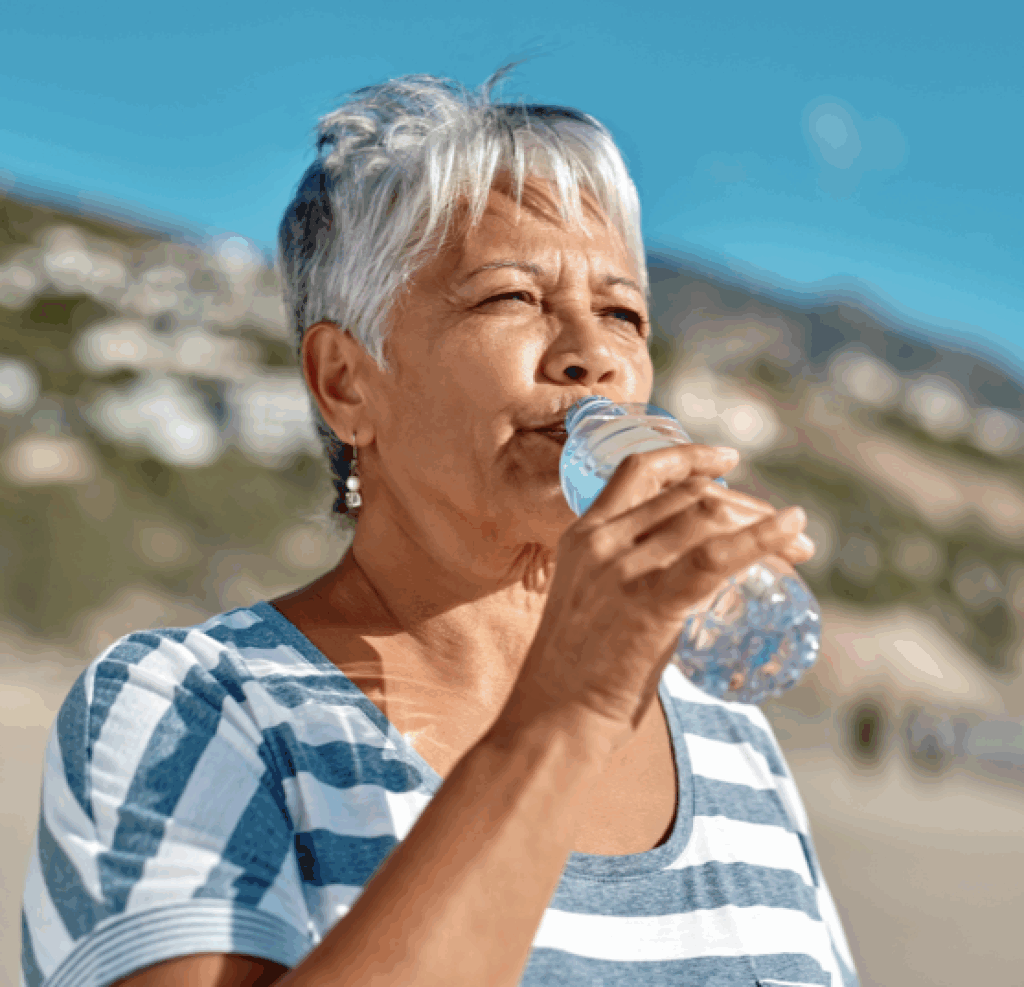By Dani Cabral, MD | Founder & Medical Director, BrainLove
As a neurologist and psychiatrist, I often see dehydration as a hidden driver of fatigue, confusion, and even fainting in my older patients — especially those living with memory loss. The truth is, dehydration is often preventable, but aging changes the way our bodies sense and respond to thirst.
Why Thirst Changes With Age
As we age, our thirst system simply doesn’t work the same way it used to. Here are the main reasons:
- Brain Signal Weakening
The hypothalamus and related brain circuits that normally sense thirst become less responsive. Brain imaging shows less activation in these regions, meaning the brain isn’t sending a strong “drink now” message. - A Higher Trigger Point for Thirst
Our bodies require a bigger rise in blood concentration (osmolality) before the thirst signal kicks in. By the time you feel thirsty, you may already be behind on fluids. - Blunted Blood Volume Sensing
Baroreceptors — sensors in our blood vessels that detect fluid changes — send weaker signals with age. That means our body doesn’t push us to drink, even when blood volume is low. - Hormonal Shifts
Aging lowers the activity of hormones that normally trigger thirst (like renin–angiotensin) and raises levels of hormones that suppress thirst (like vasopressin and atrial natriuretic peptide). - Body Composition & Kidney Changes
With lower muscle mass (which stores water) and reduced kidney concentrating ability, older adults lose water more easily and have fewer reserves to draw from.
The bottom line: thirst is muted, even when the body is running low.
Why This Matters
Because older adults often don’t feel thirsty, they may drink less than they need. The result can be:
- Unusual tiredness or lethargy
- Brain fog or confusion
- Dizziness, lightheadedness, or even fainting
For people with memory loss, these symptoms may be misattributed to dementia progression, when in reality, dehydration is making things worse.
Practical Hydration Strategies
The good news is that dehydration risk can be reduced with some simple, proactive steps:
- Drink on a schedule. Don’t wait for thirst. Pair water with meals, snacks, and medication times.
- Keep water visible and accessible. A favorite glass or bottle within reach makes a big difference.
- Make water appealing. Add lemon, berries, cucumber, or herbal teas for flavor.
- Set reminders. Use phone alarms, sticky notes, or hydration apps as gentle cues.
- Support each other. Offer water when visiting loved ones, and encourage regular sips throughout the day.
The BrainLove Takeaway
Hydration is more than comfort — it’s brain protection, fall prevention, and a way to preserve independence. By understanding why thirst weakens with age, we can take steps to stay ahead of dehydration.
✨ At BrainLove, we believe in practical, whole-person strategies that keep you and your loved ones strong, clear, and connected.
👉 Join our BrainLove Community by signing up for our email list to learn more about staying sharp, resilient, and supported on the journey of resilient aging.


